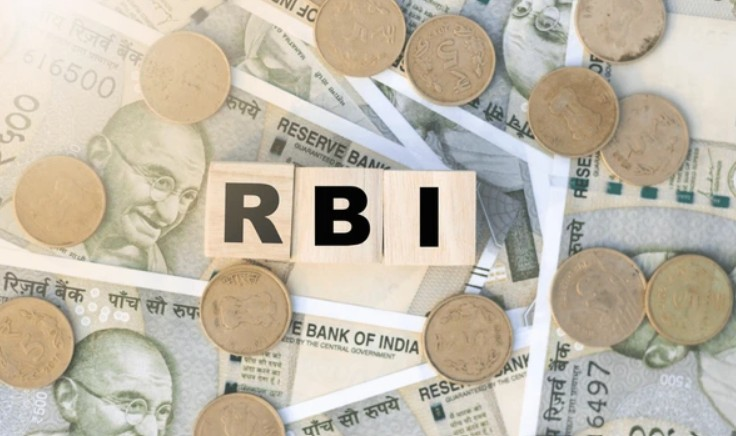RBI Simplifies Forex Rules for Start-ups


Since the past decade, India’s start-up economy has increased by many folds, transforming the spirit of innovation and development in the country thereby increasing the economy. However, the persistent problem of harsh foreign exchange (forex) regulations which govern the cross-border transaction existed. Startups heavily relay on global investors and foreign venture capitalists and actively seek to attract them. These strict rules and regulations often created roadblocks for startups which resulted in hampering their growth. Additionally, companies which wanted to expand globally had to wait for government approval for opening foreign bank accounts. To overcome such problems, the Reserve Bank of India (RBI) has recently simplified the forex norms for greater operational flexibility and ease of business for start-ups. This step is part of a broader initiative of the government and banks to encourage innovation, entrepreneurship and foreign capital flow which will result in increasing the foreign exchange of the country.
Let’s explore what are the changes and their impact on startups.
Background:
Start-ups rely on foreign venture capital and international partnerships to scale operations. The existing forex regulations under the Foreign Exchange Management Act (FEMA), 1999, were structured for old and traditional business and they had become obsolete for the modern world. These rules included:
-
Lengthy bureaucratic approvals for foreign investments
-
Tiresome reporting procedures
-
Heavy regulations/restrictions on instruments like convertible notes and foreign loans.
-
Delays/restrictions in opening bank accounts abroad
All of this resulted in hardships for founders who were already burdened with managing scaling, compliance and relations with investors.
Realizing this, the Reserve Bank of India (RBI) along with the Government of India made some series of policy changes and relaxation in them. The notification released in November, 2024 was a significant one, focusing directly at simplifying how Indian start-ups can deal with capital acquired through foreign investors and international transactions.
Key Highlights of RBI’s Updated Forex Framework for Start-ups
-
Simplification of Reporting Requirements
Start-ups were earlier required to comply with strict timeframes and procedure under the Foreign Investment Reporting and Management System (FIRMS) and other FEMA related reporting. RBI has now eased many of these requirements:
-
Penalties such as those concerned with delays/non-compliance in reporting foreign investments have now been replaced with warnings for the first time or genuine delays
-
More inclination on self-certification and simplified filings through the Single Master Form(SMF) portal.
-
Convertible Notes Regulations Eased
Earlier rules which restricted who could invest via convertible notes which are short-term debt instrument, usually used by start-ups, that can be converted into equity in future, during funding round has now been relaxed. The RBI has now
-
Allowed non-resident investors (including individuals) to purchase convertible notes.
-
Made the conversion process easier and also removed the requirement of prior government approval in many cases.(Section 8 RBI notification number FEMA 20(R)/2017-RB)
-
Relaxing Foreign Borrowings (ECB Norms)
The External Commercial Borrowings (ECBs) can now be raised by start-ups with greater ease:
-
The RBI has relaxed the restrictions on end-use of borrowed funds.
-
Reduced minimum maturity timeline for certain sectors e.g., 3 to 5 years in the infrastructure space.
-
Streamlined approvals for eligible start-ups through automatic route.
-
Foreign Currency Accounts Opening Abroad
The RBI jointly with the Indian Government has eased the restriction on opening foreign currency accounts through their notification dated 19th November,2024 thereby simplifying the process for authorized dealers to grant recognized start-ups to open foreign currency bank accounts. This allows start-ups to:
-
Open foreign currency accounts in different countries without prior RBI approval.
-
Use these foreign currency accounts for legitimate business functions like marketing, payroll for overseas workers and foreign expansion. As specified in section 2 of RBI Notification No. FEMA 10(R)(5)/2025-RB.
-
Liberalized Remittance for Investors and Acquisitions
Start-ups venturing to acquire foreign entities or establish subsidiaries abroad can now:
-
Use the Liberalized Remittance Scheme (LRS) route which allows resident individuals to remit up-to 250,000 USD/financial year in a foreign country. So basically, it enables foreign payments for foreign investment, business, immigration, education and medical treatment.
-
The 2025 budget raised the Tax Collected at Source (TCS) free limit from 7 lakhs rupees to 10 lakhs rupees for most transactions, specified in section 138 of the Union Budget, 2025.
Impact on Start-ups:
The latest measures are more than just procedural relaxations, instead they reflect a strategic change in how the nation views global entrepreneurship and the concept of globalization. Here’s how start-ups can benefit from the eased restrictions:
-
Robust Access to Global Capital
With less restrictions on investments from abroad and lending instruments, Indian start-ups can now:
-
Exploit a wider pool of foreign investors.
-
Recommend more flexible terms and conditions, thereby enhancing valuations and funding rounds.
-
Quick Expansion Abroad
By allowing foreign currency accounts and outbound investments, start-ups can:
-
Effortlessly establish subsidiaries/branch offices in the US, EU, or SEA regions.
-
Employees and venders can be paid abroad without un-necessary friction.
-
Lessor Compliance Costs
Start-ups usually do not have the resources to empanel large compliance terms. The eased filing and reporting process will:
-
Result in decrease of legal and consultancy costs.
-
Reduce the chance of penalties resulting due to missed deadlines or procedural lapses.
-
Increased Financial Instruments
The recognition of convertible notes and simplified ECBs will enable founders with more options in their fundraising arsenal. This comes in compliance with India’s ecosystem with global best practices, particularly Silicon Valley-style fundraising structures.
Some Things to Keep in Mind
Although the RBI’s move is welcomed, start-ups should still remain mindful of the broader compliance framework:
-
Ensure all foreign investments and borrowings are properly documented and filed under the revised FEMA norms.
-
Use authorized dealer (AD) banks and legal counsel for transactions involving overseas accounts or subsidiaries.
-
Maintain regular audits and records, even in a relaxed compliance regime.
How can start-ups benefit: Some Real-life Examples:
HealthifyMe, a healthcare technology company, will be able to handle the payments and investments received from foreign partners easily, thereby improving the development and growth in the aggressive global health-tech area. Further, Zolve, a fin-tech start-up providing cross border financial services, can now establish foreign currency accounts, making its presence in the global market and expanding globally.
Challenges and Areas for Improvement
Although there are many positive impacts of these changes, few gray areas remain
-
Limited awareness: Many early-stage founders are still unaware of the new rules or how to benefit from them.
-
Bank-level inertia: Some authorized dealer banks are slow to adapt to policy changes, creating delays.
To address this, the RBI shall consider issuing periodic FAQs, conduct workshops or offer partnership with industry bodies like NASSCOM or Startup India.
The simplification of forex rules by RBI can be a gamechanger for start-ups in India which aim to expand globally. These changes reflect the government’s as well as RBI’s initiative of recognizing start-ups as an important factor of innovation, employment and international collaboration.
As India aspiring to be a 5 trillion-dollar economy and a global hub for innovation, these changes will go a long way in making the journey smoother and more globally integrated.

